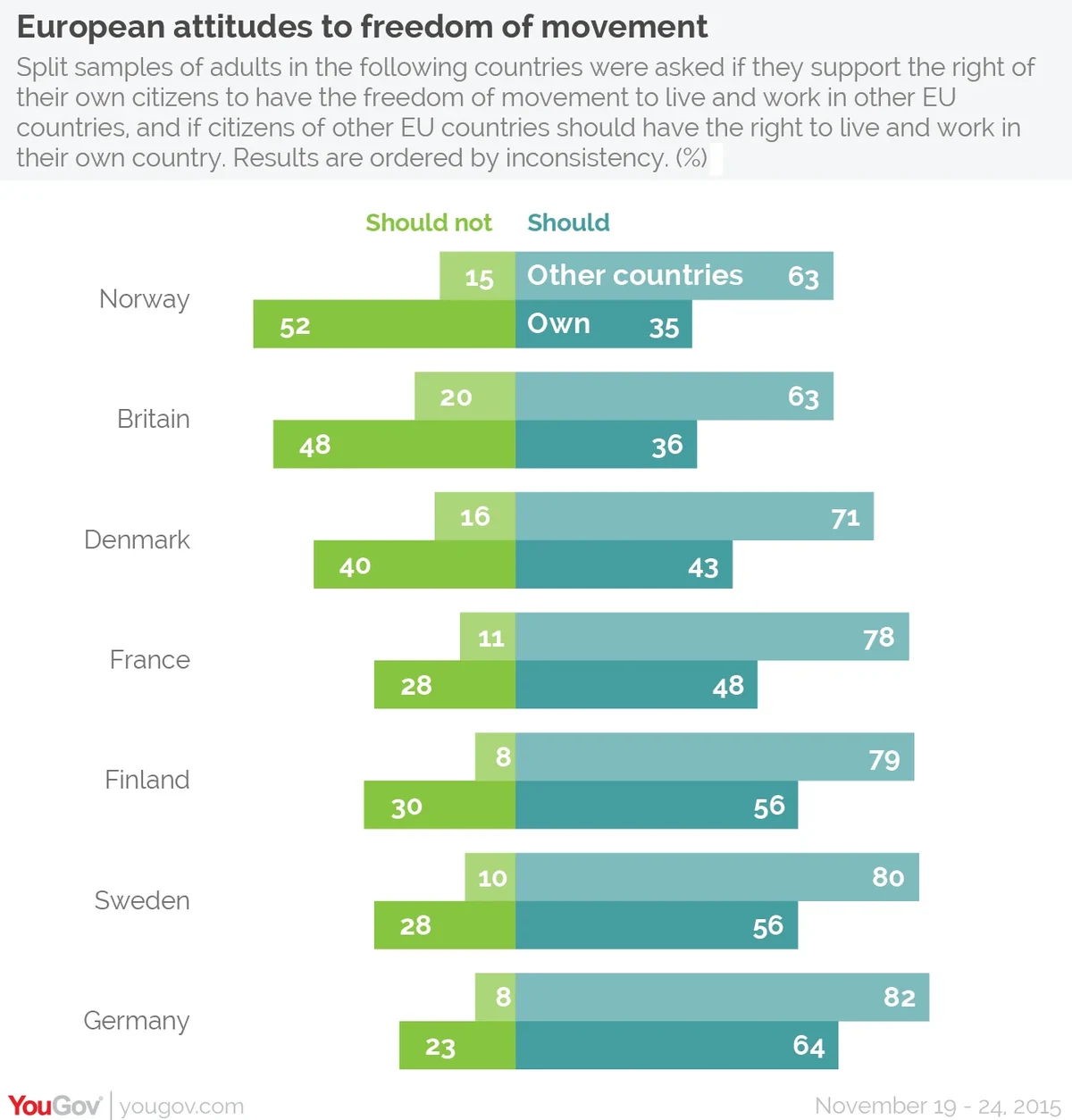British people strongly support their own right to live and work in the EU, but tend to oppose the right of EU citizens to live and work in Britain
David Cameron and Donald Tusk, the president of the European Council, are expected to talk by telephone today to decide a final timetable for the Prime Minister to set out his terms for renegotiating Britain’s relationship with the European Union. David Cameron is thought to be in favour of presenting his position at a European Council summit on December 17, which would leave time for heads of the other EU states to make up their minds and for David Cameron to report back to the public on his progress before the referendum, which could be held next summer. Of the four areas Cameron is likely to focus on, ‘cracking down on the abuse of free movement’ will perhaps have the most relevance to the public – immigration was seen as the most important issue facing Britain when we last asked the public to rank them in September.
New YouGov research across seven European countries reveals strong support among British people for their own citizens having the right to freedom of movement in the EU, but this reverses when asked about other EU citizens coming here.
When thinking about their own right to live and work in other EU countries support for freedom of movement is net +47 in Britain, but when a separate sample of people were asked about the freedom of movement of citizens from other EU countries to live and work in Britain opinion shifts to net -12. In Norway the shift is from +48 to -17.

In Denmark and France support for freedom of movement also falls from well above a majority to below 50% when the focus of the question is turned, while Germans are the most constant in their views on the matter – support only falls from 82% to 64%.
The key point of David Cameron’s attempt to renegotiate freedom of movement rules is to make Britain less desirable to migrants, by requiring EU citizens to work here for four years before becoming eligible for child benefit, tax credits or housing benefit. It is also one of the most controversial parts of his strategy, however and Martin Schulz, president of the European Parliament, has said he has “strong doubts about the legality of the four-year ban on access to welfare benefits for EU citizens.” The other three areas of negotiation are boosting competitiveness, an opt-out from the historic commitment to ever closer union and protections for non-euro countries to ensure euro countries cannot create new rules without their agreement.
PA image










